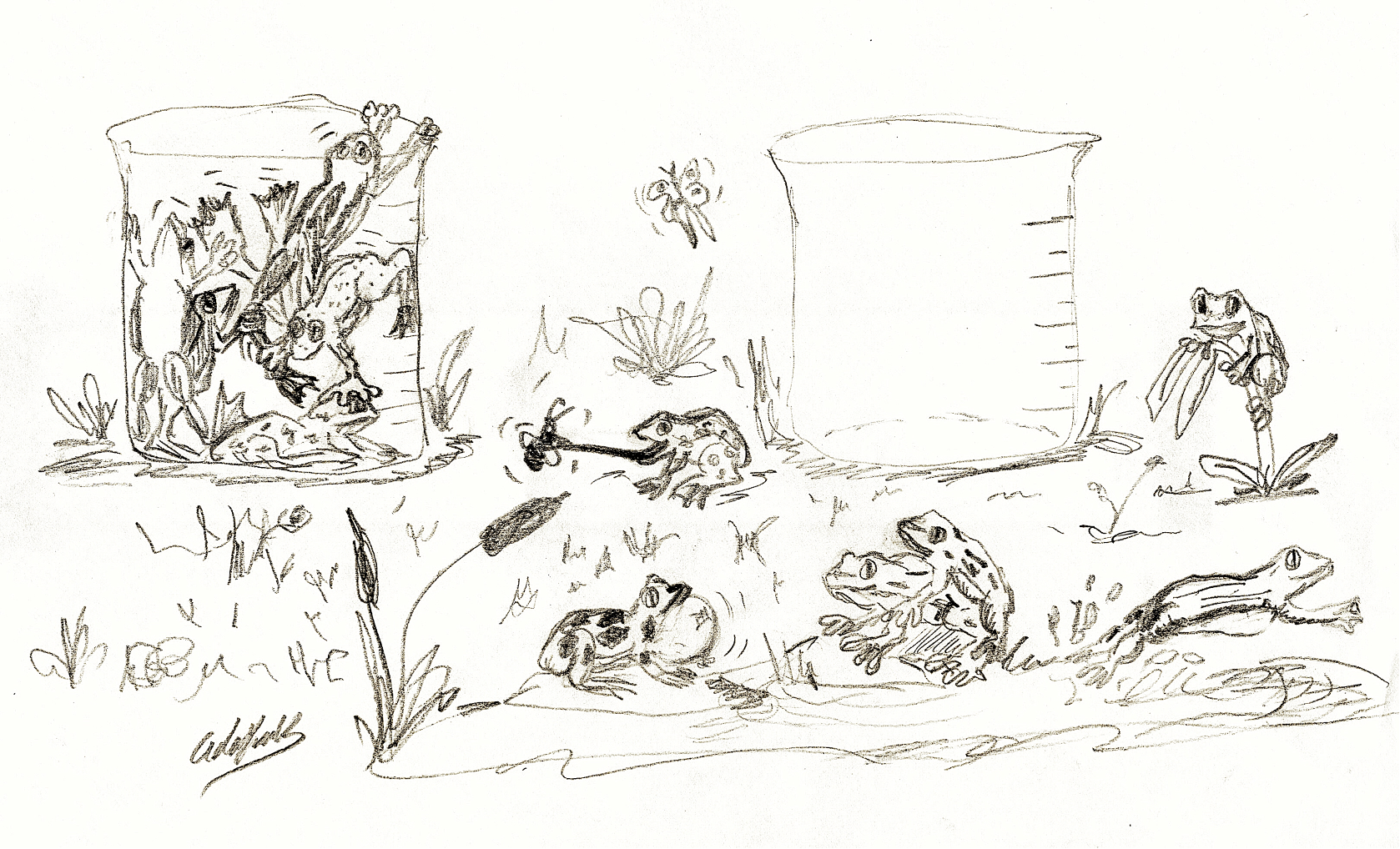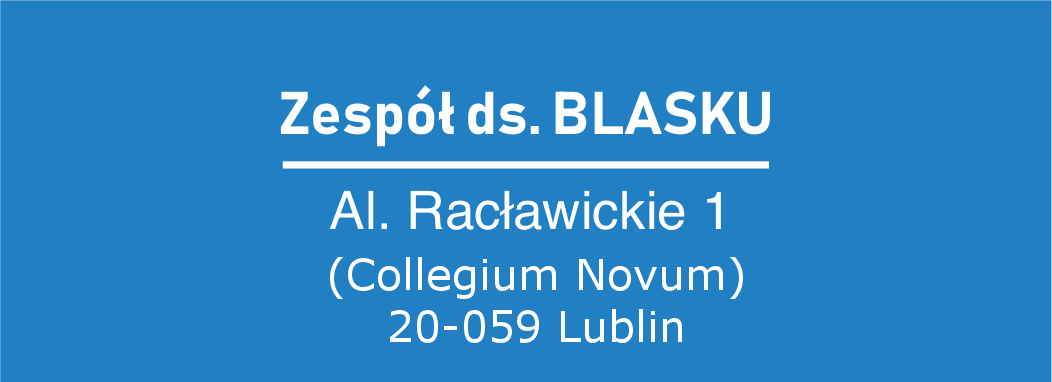Informator uniwersytecki
numer 016
październik 2022
★
6
Collective Success
This morning I saw some big frogs leaping on the road, probably enjoying the last few warmth days in the northern hemisphere before they go into another round of hibernation. Looking at frogs reminds me of a story from my childhood. The original story involves “nations” but I will avoid such stereotypes and instead use only “ponds”, such ponds can be nations, workplaces and even families.
An experiment was set to try to understand why the frogs from pond-B thrive while those from pond-A look miserable. Thus, 6 different types of frogs from pond-A and 6 other from pond-B were placed in 2 separate glass containers.
Frogs were individually selected to be of the same size and weight, and other parameters such as physical ability, strength, distance jumped, vocalisations and vision were also analysed to have 2 groups with similar characteristics otherwise.
The glass containers were then placed next to each other to maintain identical conditions, while a high-definition video camera was positioned to monitor the containers at all times.
The researchers then let the experiment to proceed on its own while they went out for a few beers.
Next day, researchers went back to find out that the container with pond-B frogs is totally empty, while that with pond-A frogs still had all 6 amphibians in it.
Puzzled, the researchers went to check the video, and found out that while frogs from both ponds (A and B) were at first chaotically trying to escape the containers, they eventually climbed on top of each other to reach the rim of the container. Suddenly, differences became clear, when one of the frogs from pond-B managed to reach the top, it turned around and extended an arm or leg to those lower and those lower did the same to those at the bottom. One-by-one all the frogs from pond-B helped each other to get out of the container.
What happened to those from pond-A? More careful analysis showed that while they did climb on top of each other and some managed to reach the top as well, it was the ones below who grabbed the ones on top by the leg and told them “where the FROG do you think you are going?”.
This practice kept all frogs from pond-A confined together.
Frogs were individually selected to be of the same size and weight, and other parameters such as physical ability, strength, distance jumped, vocalisations and vision were also analysed to have 2 groups with similar characteristics otherwise.
The glass containers were then placed next to each other to maintain identical conditions, while a high-definition video camera was positioned to monitor the containers at all times.
The researchers then let the experiment to proceed on its own while they went out for a few beers.
Next day, researchers went back to find out that the container with pond-B frogs is totally empty, while that with pond-A frogs still had all 6 amphibians in it.
Puzzled, the researchers went to check the video, and found out that while frogs from both ponds (A and B) were at first chaotically trying to escape the containers, they eventually climbed on top of each other to reach the rim of the container. Suddenly, differences became clear, when one of the frogs from pond-B managed to reach the top, it turned around and extended an arm or leg to those lower and those lower did the same to those at the bottom. One-by-one all the frogs from pond-B helped each other to get out of the container.
What happened to those from pond-A? More careful analysis showed that while they did climb on top of each other and some managed to reach the top as well, it was the ones below who grabbed the ones on top by the leg and told them “where the FROG do you think you are going?”.
This practice kept all frogs from pond-A confined together.

Let’s extrapolate this to society, where we have two choices:
1) help each other to reach higher and do better.
2) Or, we shall feel that we are all stuck in this hell and ensure that no other gets out, not because we are uncapable of succeeding but because our ego is so minuscule that makes us feel better (schadenfreude) to drag people down to our level instead of let them fly as high as they can. One irony here is that the hell referred to is in fact created by all those dragging down those above.
Sadly, pond-A is everyday life in many societies. People trying so hard to find errors/mistakes in those doing better. Of course they (those doing better) are not perfect, they are just humans (or frogs?), like you. That they do well in something does not mean they are good at all things. It is like when they interview sport(wo)men about politics, human rights or science.
As my compatriot Guillermo del Toro says “learn to forgive success”. We should all enjoy when one of us gets an achievement, an accolade, publishes some nice paper, gets a new coffee machine, or solves one of the many hurdles to do our work. The success of an individual is, in so many ways, the success of all.
This is a message to everyone, including administration and supporting offices: Do your part to help (support!) others to reach higher, then celebrate the success stories, they will be your stories too. Try not to be like (some) frogs, who have almost no satiety, engage in cannibalism, are covered in slimy mucous and often poisonous. Maybe time you metamorphose into a prince(ss)!
Facts about frogs:
Did you know that a group of frogs is called an army? that they drink water via their skin? And that when they eat they “blink”? - a movement that sink their eyeballs down so they further push food down their throat. Also, some females (but not males) frogs are able to block the cacophony of croaking by males of other species (Hoke et al 2008).
Frogs have been for decades instrumental models for biologists to study development, cloning, genetics, physiology and much more.
No animals were used for this commentary.
Adolek
Who has a selective-hearing for advice, male howls, oinks or other antagonist calls
Hoke Kim L, Ryan Michael J and Wilczynski Walter (2008) Candidate neural locus for sex differences in reproductive decision. Biol. Lett. 4518–521
(https://royalsocietypublishing.org/doi/10.1098/rsbl.2008.0192)
Check the previous articles:
© 2022 Centrum Symulacji Medycznej UM w Lublinie






